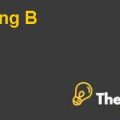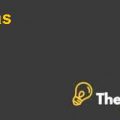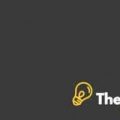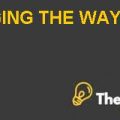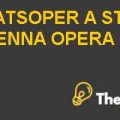Introduction
ITC Hotels is one the segments of ITC, which started as the Imperial Tobacco Company of India Limited in 1910. In 1974, its name was changed to ITC Limited. In addition to tobacco products and hotels, the company is also involved in information technology, packaging, paper boards, agri-business, foods and personal care.
The company has triple bottom line objectives of environmental, social and financial. Moreover, the corporate vision of the business includes building the nation. It core values include generating economic vale for India and developing the Nation’s environmental and social capital.
Problem Statement
Nakul Anand, the company Executive director, is responsible for the hospitality, travel and tourism businesses. One of its new hotels, ITC Gardenia, established in Bengluru, had attained the status of LEED (Leadership in Energy and Environmental Design) Platinum property. The management wanted to portray their company as a sustainable luxury hotel chain which required that they have to retrofit their eight other luxury properties to convert them into platinum status. However, the dilemma was the way to achieve this target as they did want the luxury of their customers to be compromised if they take actions to make these hotels more environmental and social friendly. According to one estimate, the restructuring of hotels would increase the capital expenditure by 15% over the next two years.
Industry Background
The Indian hotel market is highly dispersed market. The competition in the market is very strong. It includes domestic hotels such as Taj Group Hotels as well as international companies. On the other side, there are also small low-priced hotels and guest houses which is known as unorganized segment. The total hotel industry amounts to INR 956 billion and the former sector comprises of 30% of the overall market. Five-star hotels accounts for 55% of the sector. The average room occupancy rate is estimated at 62%.
SWOT Analysis
The Swot analysis analyses the strengths, weaknesses, threats and opportunities and allows the business to come up with ideas to solve problems.
Strengths
The company is a conglomerate. It has many businesses which reduce its overall risk. If one its segments fails, it could still survive through the strong position of other areas. It is ranked third Indian-listed private sector companies in terms of market capitalization. The company provides high quality products and services. It has been successful in merging the concepts of sustainability and luxury in its hotels and obtained LEED status for one of its luxury hotels. It uses environmentally friendly sources of energy and devises innovative means to minimize energy consumption. It also achieves the lowest specific water consumption through conservation, audit and bench marking. Overall, by using environmental friendly methods, it has been able to lower its costs.
It recruits one of the best individuals from the market. The recruitment process is very competitive and looks for caring and service oriented applicants. The company considers employees as assets and invests in them through training about the company core values and its mission. They are assessed on the basis of revenue enhancement, retention of customers and returns on profits which are linked to reducing energy consumption, exceptional customer service and developing new products and services. Such are the metrics and the evaluation process that enables the company to provide excellent service to its customers.
The overall profit before tax has increased from INR 7006.9 Crore to 8463.99 Crore from 2011 to 2012. It is mainly dependent on the sales of cigarettes. The profit margin has risen from 15% to 17% from 2011 to 2012. The asset base of the company has also risen. The company keeps on investing in areas of importance. For instance, the capital expenditure in hotels has risen from 369 Crore to 764 Crore.ITC Hotels Designing Responsible Luxury Case Solution
Weaknesses
The company needs to control its costs as it has been rising due to shortage of supply of electricity due to weak infrastructure.The excise duty on tobacco has increased which have affected the share price adversely(Somvanshi, 2015).
Threats
The hotel industry is marked by many competitors such as Taj Group of hotels, the Oberoi Group and other international companies. The market also has a strong unorganized segment which comprises of small hotels, low prices motels and guest houses. There is a shortage of electricity due to poor infrastructure. Therefore, the costs of electricity has been rising and the company was forced to develop their own reliable electricity supply. Due to terrorist attacks, the tourism industry has been affected adversely.The government may ban tobacco products due to public pressure which may not enable them to earn revenue from this source(Somvanshi, 2015).............
This is just a sample partial case solution. Please place the order on the website to order your own originally done case solution.

